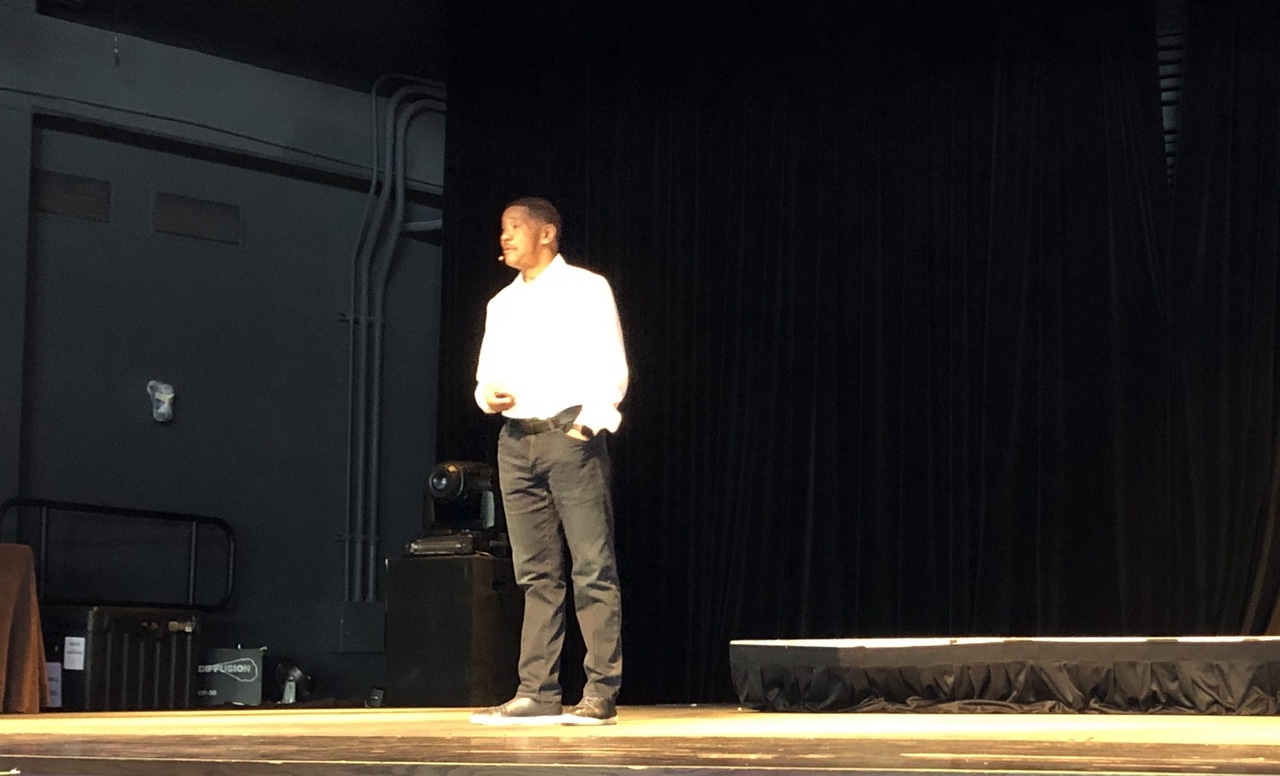Wildix Exec Blasts RingCentral, 8x8 as 'Vampire Vendors'Wildix Exec Blasts RingCentral, 8x8 as 'Vampire Vendors'
Shots absolutely were fired.

(Pictured above: Wildix’s Robert Cooper on stage at UCC Summit 2020 in Dallas.)
WILDIX UC&C SUMMIT — Partners need to work with a vendor that holds their best interests in mind.
So says Robert Cooper, Wildix‘s general manager of North America, warning that partners could risk losing their customer bases by teaming up with some of the UCaaS industry’s most prominent providers.

Wildix’s Robert Cooper
“If you work with them, they will reduce you to acting as a mere sales agent in the market,” Cooper said to a crowd Monday at the Wildix UCC Summit in Dallas.
Cooper dubbed these companies “vampire vendors,” who he said are prevailing in the market due to strong branding. Cooper said customers increasingly are abandoning local providers in favor of a company with a global brand. He listed RingCentral, Fuze, 8×8 and Vonage as examples of companies that have poured money into marketing and reaped the benefits.
“They do that so they can have a cool image, a cool brand, a cool name, so that end users remember who they are. They’re still vampires. They’re not headquartered in Transylvania, but they’re in Silicon Valley. And they have offices all across the United States and scattered around the world; in summary, their appeal to customers comes from their large market presence,” he said.
According to Cooper, the aforementioned vendors have products similar to what Wildix offers, but he said the difference comes down to the vendors’ vision for the channel. The “vampire vendors” could ultimately co-opt your customer base, while Wildix wants to put you and your services at the center of its business model, Cooper said.
We recently compiled a list of 20 top UCaaS providers offering products and services via channel partners. |
Partners that choose the latter will still need to reckon with the effects of globalization. Cooper said customers will still lean toward the household names. For that reason he urged partners to commit more to the Wildix brand, pointing to McDonald’s as an example. The fast-food giant owns fewer than 3,000 of its 37,000 locations, putting trust in franchisers who in turn rely on the corporation’s brand.
The Wildix UCC Summit is where the company is sharing its go-to-market vision and unveiling several product updates. The updates include several mobile app features and enhancements, new LED headsets, integrations with Salesforce, Zendesk and other platforms.
Cooper adds a fourth category, “Vampire Vendors.” He warns that these companies, which include 8×8, RingCentral and Fuze, will ultimately take partners’ customer bases.
“If you work with them they will reduce you to acting as a mere sales agent in the market.”#UCCSummit pic.twitter.com/GrHWA3g0aZ
— James Anderson (@JamesAndersonCP) February 3, 2020
Cooper shared three other categories of unified communications and collaboration companies during his discussion about the market.
One category, dubbed “The Walking Dead,” contains legacy voice vendors who are “slowly exiting the marketplace” but remain afloat due to a large base of partners and customers. These companies also turn the partner into a simple sales agent, Cooper said.
“You’ve given us many examples about how you’ve tried to partner with them in the past and how they failed you,” he said. “And even today how they’re starting to betray you by …
… selling your database to new cloud providers who sell direct[ly] to your customers.”
The second group, “VoIP Truz,” features small or startup companies that lack the skill and infrastructure to grow large. Cooper said those organizations compensate for their deficiencies with financial incentives for partners. A Wildix partner reported accepting a 94% profit margin from one such company, according to Cooper. The partner installed about 300 systems but ultimately doubled its costs through maintenance and repair.
“Some of you have even been tempted to use them or have used them in the past, and I don’t blame you. The allure of higher margins is appealing,” Cooper said. “But when you use a VoIP Truz, the software that they use and the integration that they use is not solid. So what you wind up doing is paying more money in the support cost and more time to fix and repair.”
The last group is the “dinosaurs” which Cooper said include traditional carriers and internet services providers that do not view PBX as a core business. This group harnesses cheap software bundled with add-ons like email and cloud services to offer a PBX.
“We’ve seen offers as low as $1. They do this because they want to maintain the viability of their price point on their core business. It makes it difficult for you to sell into their customer base, because you can’t compete — certainly not on price.”
We reached out to several of the companies that Cooper mentioned in his keynote for reaction, but they either had no comment or no response by press time.
Wildix is running a conference in Barcelona, Spain at the same time.
Read more about:
AgentsAbout the Author
You May Also Like


